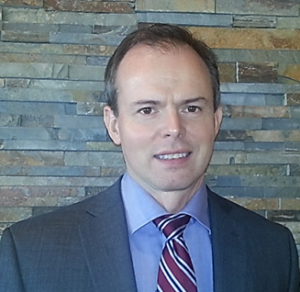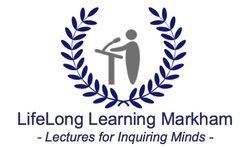Oct 15 – David Phillips, Senior Climatologist, Environment Canada
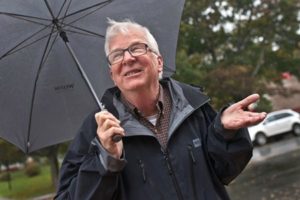
Canadians’ Fascination with the Weather
Why is weather so important to Canadians? Why are we so obsessed with it? I’ve spent half my career trying to figure out why Canadians are so outwardly disgusted by weather, yet so secretly proud of it at the same time. I hope it is not because we are boring. I do know our weather is not boring! And Canadians love to talk about it. I will share with you my experiences – both good and bad – in talking about our love/hate relationship with the weather.
What is clear to all Canadians is that something is happening to our weather. It’s almost as if extreme weather has become the norm. And there seems to be more freakish weather! Further, the seasons seem to be out of whack, certainly not what our teachers and parents told us it would be like. Some experts suggest that we may be witnessing the beginning of a profound change to our climate and bad weather may be proof of an overheated, out-of-control planet. On the other hand, it has happened before; maybe we are going through some rough times, experiencing some bad “weather” luck. There is so much we don’t know about our weather. But what has become clear is that our planet is warming and the number of weather-related disasters is on the rise. Could it be that weather is more important to us now than it ever has been? And the rest of the world is doing what Canadians have always done…talking about the weather.
David Phillips has been employed with Environment Canada’s weather service for 50 years. His work activities relate to the study of the climate of Canada and to promote awareness and understanding of meteorology. He has published several books, papers and reports, including a book on The Climates of Canada, and two bestsellers: The Day Niagara Falls Ran Dry and Blame It On The Weather. He is the originator and author of the Canadian Weather Trivia Calendar, the most popular calendar sold in Canada. David frequently appears on national radio and television as a commentator on weather and climate matters. He has been awarded the Commemorative Medal for the 125th Anniversary of the Confederation of Canada, the Queen Elizabeth Golden and Diamond Jubilee Medals and has twice received the Public Service Merit Award. David is the recipient of three honorary doctorates from the universities of Waterloo and Windsor and Nipissing University. In 2001, David was named to the Order of Canada.
Oct 22 – Ted Barris – Author, Broadcaster, Professor, Journalist
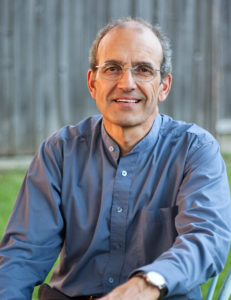
The Dam Busters: Canadian Airmen and the Secret Raid Against Nazi Germany
It was a night that changed the Second World War. The secret air raid against the hydroelectric dams of Germany’s Ruhr River took years to plan, involved an untried bomb, and included the best aircrews Allied Bomber Command could muster – many of them Canadian. The raid marked the first time the Allies successfully took the war inside Nazi Germany. It was a mission that became legendary.
The book is based on personal accounts, flight logs, maps, and photographs of the Canadians involved.
Ted Barris is an award-winning journalist, author, and broadcaster. For more than 40 years, his writing has regularly appeared in the national press – Globe and Mail, National Post, as well as magazines as diverse as Legion, Air Force, esprit de corps, Quill and Quire, and Zoomer. He has also worked as host/contributor for most CBC Radio network programs and on TV Ontario. He is a full-time professor of journalism and broadcasting at Toronto’s Centennial College.
Barris is the author of 18 bestselling non-fiction books, including a series on wartime Canada: Juno: Canadians at D-Day, June 6, 1944 … Days of Victory: Canadians Remember 1939-1945 … Behind the Glory: Canada’s Role in the Allied Air War … Deadlock in Korea: Canadians at War, 1950-1953 … Victory at Vimy: Canada Comes of Age, April 9-12, 1917 … Breaking the Silence: Veterans’ Untold Stories from the Great War to Afghanistan. In June 2014, The Great Escape: A Canadian Story won the 2014 Libris Non-Fiction Book of the Year Award (shared with astronaut Chris Hadfield).
Oct 29 – Dr. Phil Teillet, Scientist, Professor
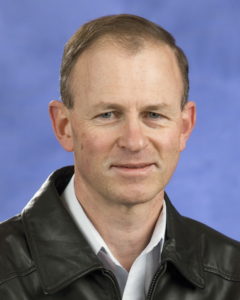
Artificial Intelligence and Other Disruptive Technologies: Enhancing or Undermining Community?
Disruptive technologies are considered, with particular attention given to artificial intelligence, robotics and virtual reality, including perspectives on the impacts of these technologies on our communities.
Prof. Dr. Philippe Martin Teillet is from St. Boniface, Manitoba, and Métis. Phil obtained a B.Sc. degree in physics from the University of Ottawa, and M.Sc. and Ph.D. degrees in astrophysics from the University of Toronto. He worked as a federal government research scientist, at Natural Resources Canada, for 29 years and then as a university professor, at the University of Lethbridge, for 5 years, focusing on the physics of satellite imaging of the Earth from space. He also worked for a year as a Visiting Scientist at the University of Arizona’s Optical Sciences Center in Tucson, Arizona, and for a year as a Visiting Scientist at NASA’s Goddard Space Flight Center in Greenbelt, Maryland. His research bibliography includes authorship or co-authorship of over 400 research publications. He is now busily retired and living in Ballantrae.
Nov. 5 – Dr. Ellen Choi, PhD.
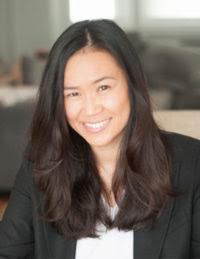
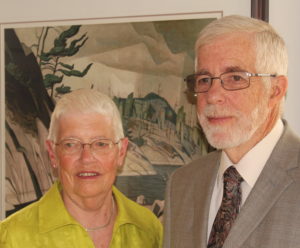
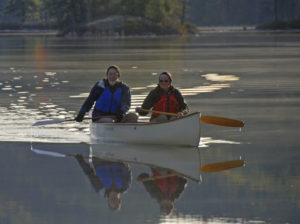
In the Footsteps of the Group of Seven and Tom Thomson
Sue and Jim have been on a quest to locate the places that inspired the Group of Seven painters and Tom Thomson. They particularly like to search for sites that can only be reached by canoe and on foot. The talk will compare photographs of some of the 600 painting sites they have found with the corresponding artwork.
Sue is retired nurse. She is also an artist – a traditional rug hooker. Her rug hooking designs have won awards in the Burlington Art Centre and from the Ontario Hooking Craft Guild. In 1977 she was making a rug hooking adapted from A.Y. Jackson’s painting “Hills, Killarney, Ontario (Nellie Lake).” During a canoe trip in Killarney Provincial Park, Sue and Jim paddled to Nellie Lake and were surprised to find that they could locate the exact spot where Jackson had sat when he did the painting. After this initial success, they have continued to search for other painting locations. Since the artists did not keep detailed records of where they worked, each painting represents a puzzle to be solved. For each of the about 600 places that they have located, they have recorded what the view looks like now and have compared it with the artist’s impression of the same scene.
